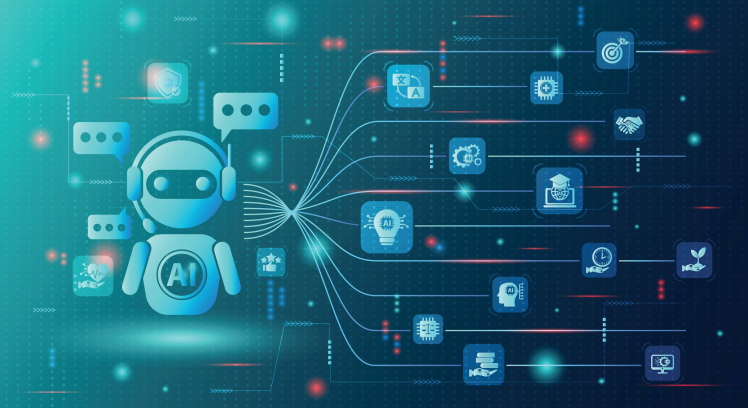Financial markets are no strangers to disruption. From the first electronic trades to high-frequency algorithms, every innovation has changed how capital moves. Now, a new shift is underway: the rise of Agentic AI—intelligent systems that don’t just analyze data but act with independence, adjusting strategies in real time and executing decisions like seasoned traders.
This technology is not just an upgrade; it represents a fundamental change in market behavior, risk management, and trader empowerment.
🔹 What Makes Agentic AI Different?
Traditional AI is reactive—it processes information and responds to a prompt. Agentic AI goes further by:
-
Acting autonomously within defined limits.
-
Pursuing goals such as maximizing returns or minimizing risk.
-
Learning and adapting from shifting market conditions.
-
Coordinating actions across multiple assets and markets simultaneously.
In simple terms, if old AI was an advisor, Agentic AI is more like a co-trader working beside you—fast, adaptable, and always active.
🔹 The Forex Advantage
Forex markets, operating 24/7, are an ideal ground for Agentic AI. Here’s how it’s already changing the game:
-
Real-Time Decision Making: AI agents adjust positions instantly when central banks surprise with policy shifts.
-
Risk Management: Automated hedging strategies protect traders from sudden volatility.
-
Market Sentiment Tracking: From global news to social media chatter, AI gauges market mood faster than any human team.
-
Adaptive Execution: Orders are placed with precision, minimizing slippage even during high volatility.
This is especially powerful for retail traders, who can now access tools once reserved for major institutions.
🔹 Opportunities and Challenges
While Agentic AI offers enormous benefits, it comes with risks that the industry must address:
Opportunities:
-
Greater efficiency in trade execution.
-
Improved access to advanced analytics.
-
Democratization of institutional-grade strategies.
Challenges:
-
Systemic risk if multiple AI systems act in the same way.
-
Questions of accountability when autonomous decisions cause losses.
-
Regulatory uncertainty around AI-driven finance.
🔹 A Global Shift
Agentic AI’s influence extends beyond trading desks. It will reshape:
-
Liquidity flows across currencies.
-
Compliance monitoring and anti-fraud systems.
-
Geopolitical dynamics, as countries with stronger AI ecosystems may gain financial dominance.
Just as electronic trading defined the 1990s and algorithmic trading the 2000s, the 2020s may be remembered as the decade of Agentic AI in finance.
🔹 Final Thoughts
Agentic AI is not a replacement for human traders. Instead, it’s a force multiplier—a partner that enhances speed, accuracy, and adaptability. For Forex participants, this means a future where opportunities are clearer, risks are more manageable, and decision-making is sharper.
But like any powerful tool, success lies in how we use it. Traders, regulators, and institutions must balance innovation with oversight to ensure that AI-driven finance remains an engine of growth rather than instability.
Disclaimer: This article is for educational purposes only. Trading Forex involves risk and may not be suitable for all investors.













